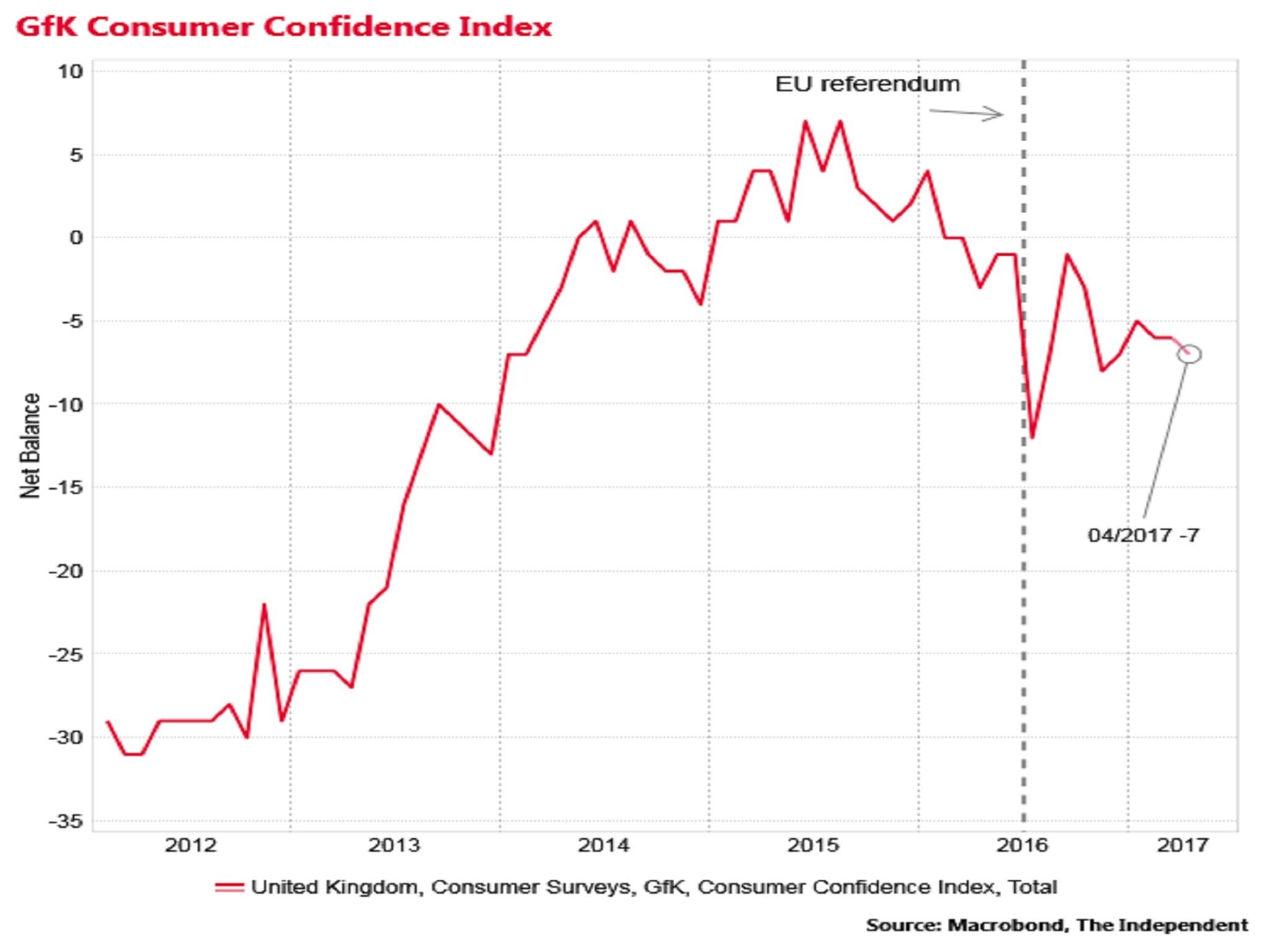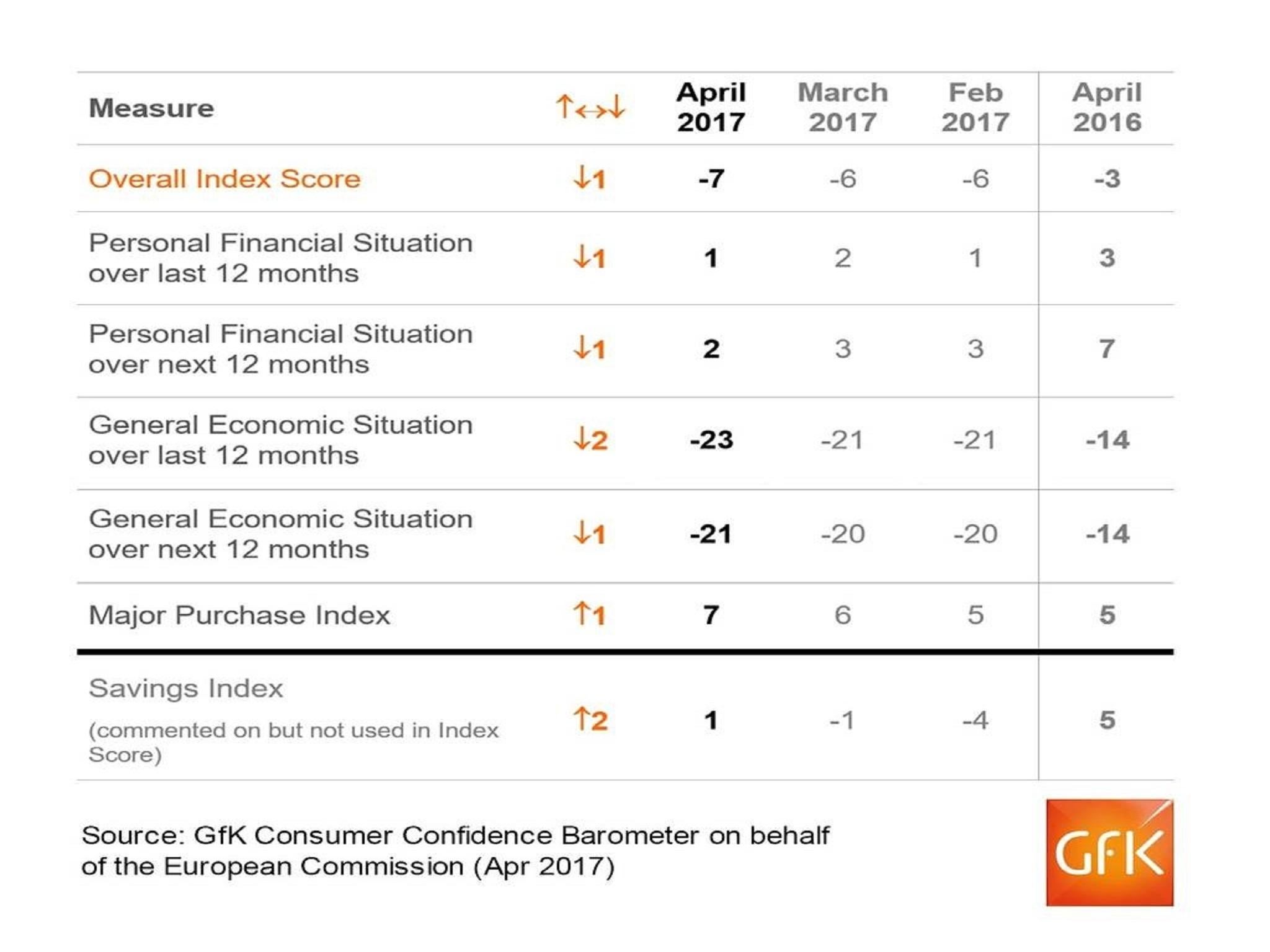Your support helps us to tell the story
From reproductive rights to climate change to Big Tech, The Independent is on the ground when the story is developing. Whether it's investigating the financials of Elon Musk's pro-Trump PAC or producing our latest documentary, 'The A Word', which shines a light on the American women fighting for reproductive rights, we know how important it is to parse out the facts from the messaging.
At such a critical moment in US history, we need reporters on the ground. Your donation allows us to keep sending journalists to speak to both sides of the story.
The Independent is trusted by Americans across the entire political spectrum. And unlike many other quality news outlets, we choose not to lock Americans out of our reporting and analysis with paywalls. We believe quality journalism should be available to everyone, paid for by those who can afford it.
Your support makes all the difference.Consumer confidence ebbed slightly in April, in the latest sign of weakness in the shopper-driven UK economy since last year's Brexit vote.
According to the monthly GfK survey the index declined one point to minus 7 this month.
Unexpectedly buoyant consumer spending since last June's referendum is the reason GDP growth was much stronger than most analysts expected in the second half of last year.

But there are now signs of the British consumer flagging, as a sudden rise in inflation eats into disposable incomes, raising concerns about the wider economy's momentum.
According to the Office for National Statistics, retail sales fell at their fastest rate in seven years in the first quarter of 2017. Retail sales account for around a fifth of total expenditure in the economy.
GfK reported that four of the five measures making up its headline index declined this month as people became gloomier about their personal financial situation over the next 12 months and also the general outlook for the year ahead.

However, the GfK index remains above the minus 12 figure hit in the immediate wake of last summer's Brexit vote.
There was a record decline in July followed by a large bounce back in August and September.
Joe Stanton, head of market dynamics at GfK, called the latest figure “surprisingly stable” despite the decline.
GDP growth picked up to 0.7 per cent in the final quarter of 2017.
Analysts expect that to dip to between 0.4 and 0.5 per cent on Friday when the ONS releases its Q1 2017 forecast.
“Worryingly for UK growth prospects, the fundamentals for consumers look highly likely to see further deterioration over the coming months as rising inflation eats further into purchasing power with the squeeze reinforced by muted earnings growth,” said Howard Archer, economist at IHS Global Insight.
Join our commenting forum
Join thought-provoking conversations, follow other Independent readers and see their replies
Comments